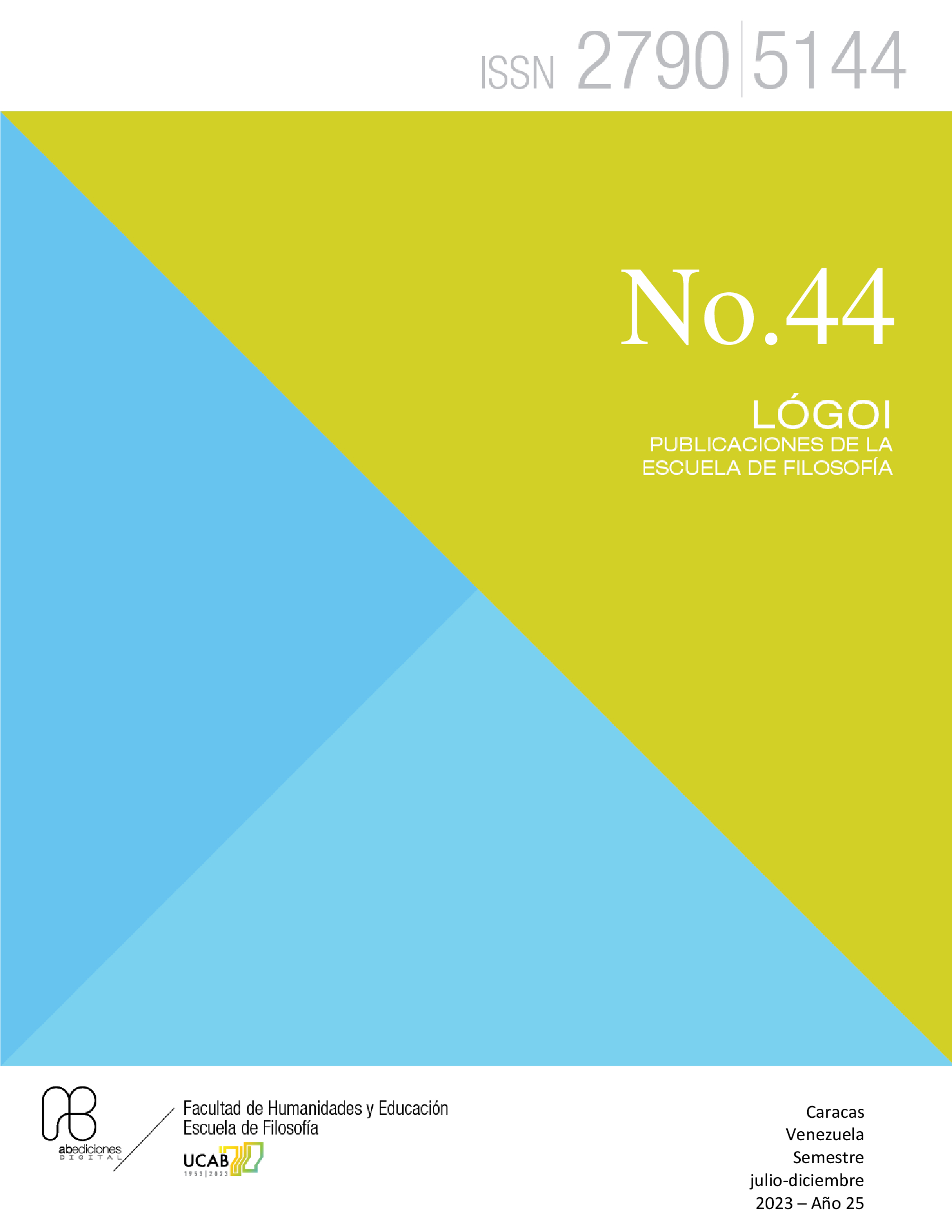Habermas: After a diagnosis, a universal principle: the communicative reason
DOI:
https://doi.org/10.62876/lr.vi44.6298Keywords:
economics, philosophy, rationality, ethics, secularityAbstract
In the first part of this paper, a "Habermas-way" diagnosis is made: uncertainty as the climate of an interconnected world without a common basis, the crisis of successful “Enlightened Reason”, including its techno-scientific expression, and critical reason. In the second part, it discusses the paradoxical outcome of modernity and its unfulfilled promises, as well as the crisis of modern reason which, despite the postmodern reaction, addresses the search for the foundation of discourse ethics and the problem of presuppositions, demonstrably valid norms, the importance of language, communicative action and parliamentarism. The third section presents three final reflections, including the need to continue the struggle for emancipation, the complexity of putting this diagnosis into practice, and the criticism that Habermas has received for ignoring cultural differences and reducing communication to a linguistic exchange.
Downloads
References
Di Giacomo, Mario. «La República Deliberativa de Jürgen Habermas: ensayo sobre un gobierno de la reflexión». Http://purl.org/dc/dcmitype/Text, Universitat Autònoma de Barcelona, (2009). https://dialnet.unirioja.es/servlet/tesis?codigo=182287.
Enrique, Dussel. Politica De La Liberacion II. Editorial Trotta, S.A., 2009. Accedido 5 de junio de 2023. http://gen.lib.rus.ec/book/index.php?md5=8441D106D2571E40542CBBFB12974FFC.
Finlayson, Gordon. Habermas. A Very Short Introduction. Very Short Introductions. Oxford University Press, USA, 2005. http://gen.lib.rus.ec/book/index.php?md5=99bca4cd80297a5031fd266ff0defb9d.
Floridi, Luciano. The Fourth Revolution: How the Infosphere is Reshaping Human Reality. New. Oxford: OUP Oxford, 2014.
García, Néstor. «Culturas híbridas: estrategias para entrar y salir de la modernidad», 1989.
García, Néstor García. «Entrar y salir de la hibridación». Revista de crítica literaria latinoamericana, 1999, 53-57. DOI: https://doi.org/10.2307/4531056
Gordon Finlayson, James. Habermas A Very Short Introduction. USA: Oxford University Press, USA, Year: 2005, 2005. DOI: https://doi.org/10.1093/actrade/9780192840950.001.0001
Habermas, Jürgen. El discurso filosófico de la modernidad. Katz Editores, 2008. DOI: https://doi.org/10.2307/j.ctvm7bdhv
———. «Reflections and Hypotheses on a Further Structural Transformation of the Political Public Sphere». Theory, Culture & Society 39, n.o 4 (1 de julio de 2022): 145-71. https://doi.org/10.1177/02632764221112341. DOI: https://doi.org/10.1177/02632764221112341
Jurgen, Habermas. Pensamiento Postmetafisico. Taurus Humanidadez, 2011. http://gen.lib.rus.ec/book/index.php?md5=984DDB4D04B7ED8952D32EFF73AFDF8F.
«Laudato si’ (24 de mayo de 2015) | Francisco». Accedido 19 de enero de 2023. https://www.vatican.va/content/francesco/es/encyclicals/documents/papa-francesco_20150524_enciclica-laudato-si.html.
Marina, José Antonio. «6.3.2023.- La industria de la persuasión». José Antonio Marina (blog), 6 de marzo de 2023. https://www.joseantoniomarina.net/categoria-blog/6-3-2023-la-industria-de-la-persuasion/.
Steinhoff, Uwe, Karsten Schöllner, y Uwe Steinhoff. The Philosophy of Jürgen Habermas: A Critical Introduction. Oxford ; New York: Oxford University Press, 2009. DOI: https://doi.org/10.1093/acprof:oso/9780199547807.001.0001
Zaid, Gabriel. Cronología del progreso. Debate, 2016.
———. «El mito del progreso». El Colegio Nacional, s. f., 465-75.
———. El progreso improductivo. Debolsillo, 2012.
———. «La fe en el progreso». Letras libres 6, n.o 71 (2004): 20-21.
———. «La historia como progreso». Letras libres 6, n.o 72 (2004): 65-70.
https://www.arte.tv/en/videos/098622-000-A/juergen-habermas/
Published
How to Cite
Issue
Section
License
Copyright (c) 2023 Wilfredo González

This work is licensed under a Creative Commons Attribution-NonCommercial-ShareAlike 4.0 International License.










.png)











